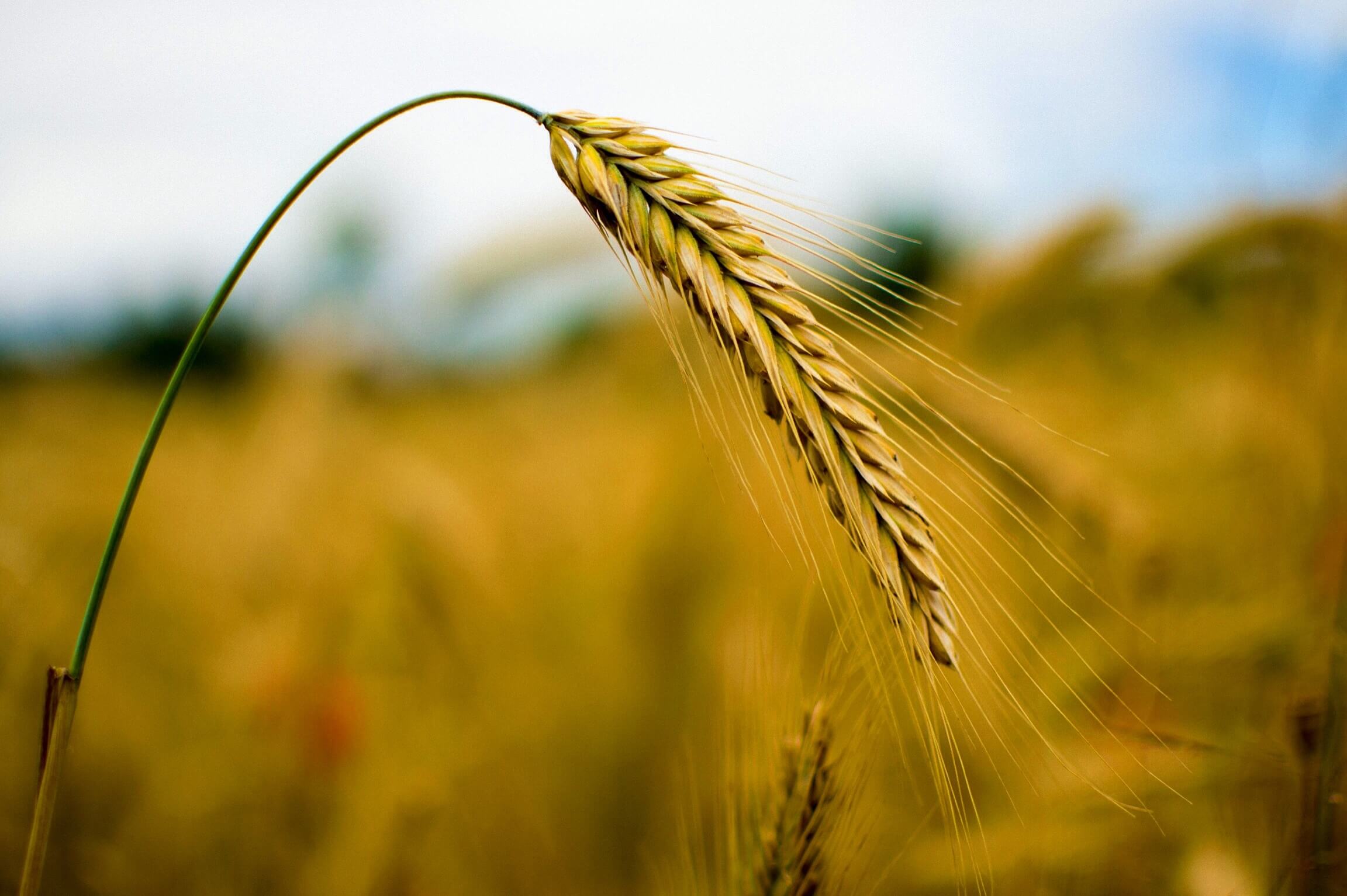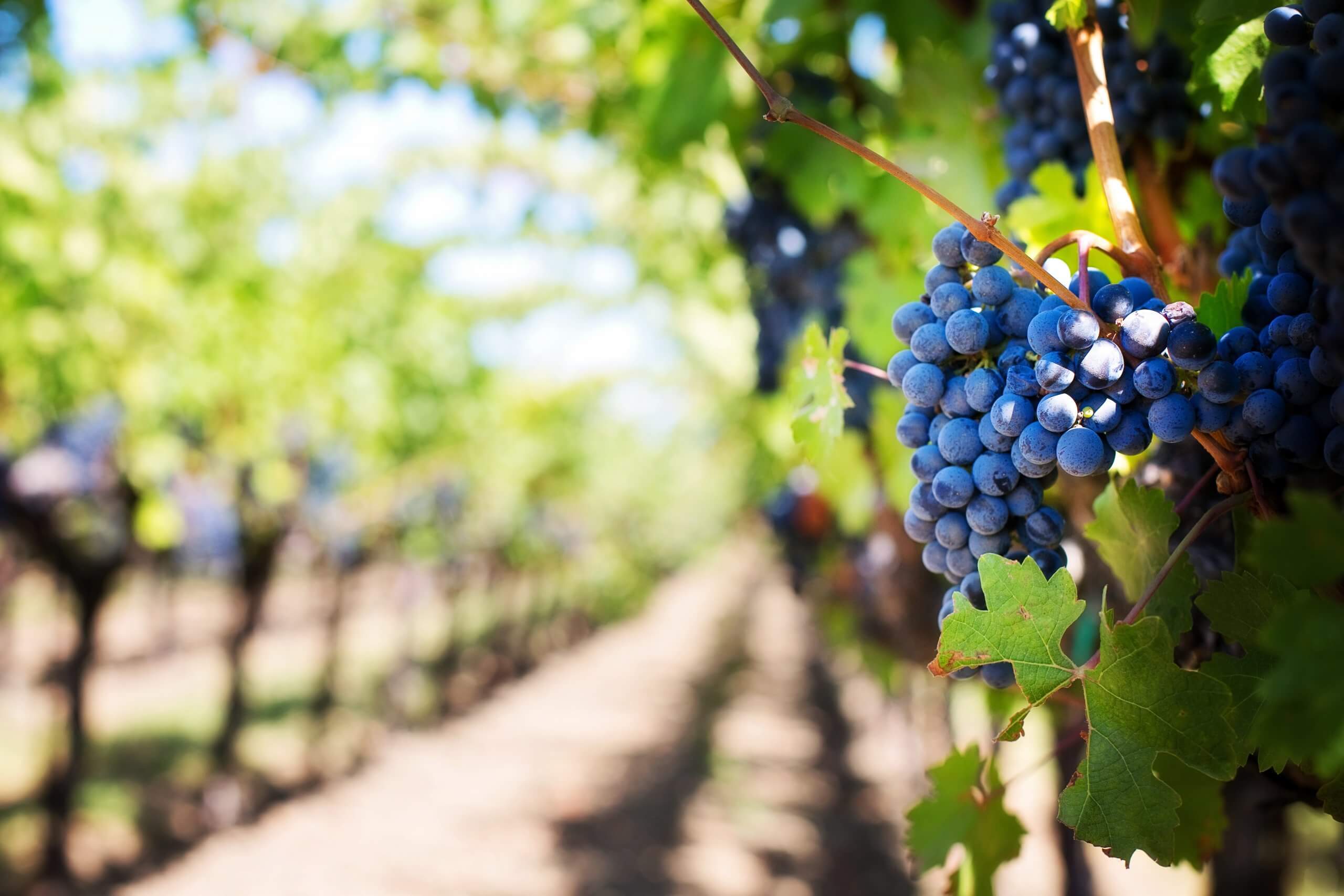Grapes, wheat and corn: according to a new study, popular agricultural crops in the Mediterranean countries will need more irrigation in the near future - and this when the water sources in the region are only dwindling. How are Israeli farmers preparing for this? And why, despite what appears on our water bill, does water have no price?
By Racheli Vox, Angle - news agency for science and the environment

Along with its many devastating consequences, the war that has been raging in Europe for the past few weeks also affects the basic agricultural products that we all feed on. Russia and Ukraine are responsible for a significant part of wheat and corn exports to the world, and the prices of these two crops jumped by dozens of percent In Israel And in the world since the beginning of the fighting - which may also harm their supply.
However, even when the current fighting ends, concerns about these crops will not go away. In a new study Conducted by an international team of researchers and in which the countries of the Mediterranean basin (and Israel as a whole) were examined, it was found that basic and popular agricultural crops in the region will need 16-10 percent more water - and this at the same time as the depletion of water sources in the region, partly due to the climate crisis.
In the new study, published in the scientific journal Agricultural Water Management, the researchers built a computational model that analyzes climate, soil, crop and agricultural practices data in a given area, and based on that provides predictions for the amount of water the plants will need. They used it to examine what is expected to be the condition of three major agricultural crops in the Mediterranean basin: grapes, corn and wheat. With the help of the model, the researchers created future forecasts according to 2 of the accepted possible scenarios adopted by the Intergovernmental Panel on Climate Change (IPCC): RCP 4.5, an intermediate scenario that assumes the implementation of certain policy measures to reduce the amount of greenhouse gas emissions, and RCP 8.5, which represents a situation where greenhouse gas emissions are high.
The researchers found that in the Mediterranean countries, the three crops tested will need a greater amount of water in 2065-2036 (compared to 2005-1976), under the two scenarios tested: corn will need an average of 13 percent more water, wheat 16 percent more and the grapes for 10 percent more. On the other hand, the phenomenon of droughts is expected to increase in these years due to the climate crisis, which is expected to lead to a general decrease in the yield of the fields - especially in crops that are considered relatively stable, such as corn and wheat.
80 percent of the water - for agriculture
Already today, the water consumption of the agriculture sector is significant. In Europe, it is about 25 percent of all water consumption. In some of the Mediterranean countries, the demand of the agricultural sector is even about 80 percent of all the water consumed.
In Israel, the water consumption of the agriculture sector constitutes About half of the total water consumption. "We are a little closer to the equator than other Mediterranean countries and it is warmer here than in Italy and Greece, for example, so we irrigate a little more than they do - but on the other hand, in the Nile basin we need to irrigate more than here," says Dr. Uri Hochberg from the Land Institute , Water and Environment at the Volcanic Center for Agricultural Research. "In Israel there is also a fairly respectable difference in the need for irrigation between the south and the north."
Prepare for the effects of the climate crisis on agriculture
the corn, the wheat וthe vine All three crops are popular in Israel, with the last two also included in the seven species with which the Land of Israel is blessed. "It is not customary to irrigate wheat in Israel," says Hochberg. "Corn is mostly an irrigated crop in Israel, although in other parts of the world this is not necessarily the case. An edible vine is an irrigated crop everywhere."

According to him, the subject of watering the wine vines has experienced vicissitudes over the years. "Traditionally, Italy and France had regulations that completely prohibited their irrigation, established to protect the local growers from competition from the 'New World' - places like Chile, South Africa, Australia and California," Hochberg says. "There are only very specific places that have both enough heat and sunlight and enough water to grow wine vines, and the French and Italians said - if you irrigate it, then you can't call it wine. In the end, the growers from the New World 'beep' on these regulations - and in the end the French and Italians kind of shot themselves in the foot, because they stayed with this regulation for a very long time, and in the end they had a much lower yield because of it." According to him, until today there are areas where the wine vines are not irrigated, but the trend of their irrigation is expanding.
According to the researchers who conducted the new study, there is a need to develop, implement and support strategies to prepare for the effects of the climate crisis on the agricultural sector and its produce. According to them, this is especially necessary in light of today's rapid demographic growth and the problems that may result from it in the context of food security.
give everything for water
With the increase in demand for water and technological developments in the field, Israeli farmers are taking various steps in order to save on irrigation. One of them is growing in net houses: buildings that resemble greenhouses but are covered with netting and not plastic, inside which many crops are grown in Israel today - such as peaches, avocados and bananas. In addition to the fact that the net houses protect the crops from pests and from hail damage, they reduce the extent to which the crops are exposed to solar radiation, thus reducing their need for water. "In bananas, the chain houses reduced water consumption by about half," says Hochberg.
Another solution for saving water is, of course, drippers - the old Israeli invention, which allows for slow, economical and more precise irrigation of water.
According to Hochberg, beyond technology, one of the main directions for progress in the field is conducting research on irrigation that is specific to crops, soil types and different times of the year. "Today, more and more studies are being conducted, including at our institute, in which we examine what needs to be done to give the plant exactly what it needs," says Hochberg. "The goal is that as little water as possible reaches places that the plant cannot reach, as happens when you water too much, and that the water is given exactly at the time when the plant needs it."
"When I was a student, a professor from Portugal told me that 'Water is priceless,'" says Hochberg. "I told her that there is - heaven costs Israeli farmers about NIS 2 per cubic meter. She answered me that this is what they pay because that is what is asked of them - but if there is no water, we will be ready to pay NIS 30 per cubic meter as well." Such a danger of a water shortage (and hence also an increase in prices) could materialize in different places with the increase in demand for water for irrigation alongside the decrease in the amount of water available. "In a world where they are a limited resource, we will be ready to give everything to have water", he concludes.
More of the topic in Hayadan:
- Transgenic plants - the fear and the necessity
- In Israel there are 270 companies, most of them start-up companies, dealing in the water sector
- Israeli-Jordanian cooperation: a virus was developed that enables the cultivation of tomatoes during periods of drought
- How will the next drought shape our future?
- The drought in the eastern Mediterranean - the worst in the last 900 years
